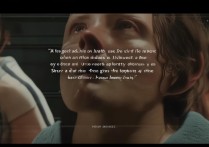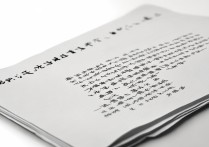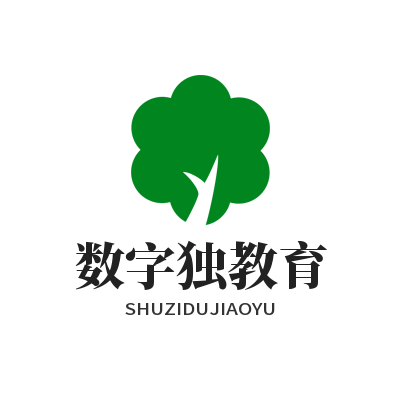英语作文范文
The Power of Persistence: My Journey with the Guitar
Part 1: A Rocky Start (Initial Frustration & Challenges)
| Timeframe | Experience | Emotional State | Key Difficulty |
|---|---|---|---|
| Week 1–Month 3 | Fingertips raw and bleeding; strings feel stiff like wire under my clumsy hands. Simple chord shapes (G, C, D) required immense focus but produced muddy sounds. Practice sessions left shoulders sore. | Overwhelmed → Doubtful | Coordinating left-hand muting while trying to strum cleanly right-handed. My attempts sounded more like noisy static than music. Even open notes buzzed discordantly due to poor technique. Each failure amplified self-criticism: "Maybe I just don’t have musical talent." Thought about quitting daily. |
| Month 4–Month 6 | Slight improvement in dexterity but progress remained painfully slow. Learning hammer-ons made nails break repeatedly. Trying to follow tablature felt like deciphering ancient hieroglyphs while blindfolded – theoretical understanding didn’t translate to muscle memory. Frustration peaked when recording myself revealed how offbeat my rhythm actually was compared to backing tracks. | Frustrated → Determined | Mastering consistent timing without relying solely on metronome clicks. Realizing technical precision demands thousands of repetitions beyond what feels "good enough." |
Part 2: Small Wins Fuel Momentum (Breakthrough Strategies & Milestones)
After hitting rock bottom midway through Year 1, three tactics transformed everything:
- Micro-Goals Over Marathons: Instead of tackling entire songs immediately, I isolated tricky passages into digestible chunks (e.g., mastering barré chord transitions across just two frets before expanding). Celebrating these mini-victories built compound confidence. Tabbing became less daunting when broken into scale exercises first.
- Intentional Slow Practice: Using a smartphone slowed playback by 50% allowed me to hear why notes sounded flawed previously. This revealed subtle slides between notes I’d missed entirely at tempo. Slow practice wasn’t boring—it was surgical precision training for my ears AND fingers. Gradually increasing speed only after perfection at slower tempos prevented bad habits from solidifying.
- Active Listening Revolution: Switching from passive watching on YouTube to dissecting recordings changed everything. By isolating basslines from songs like "Horse with No Name," I trained my ear to distinguish timbre, dynamics, and phrasing nuances professionals used. Mimicking their articulation forced my technique to adapt organically rather than forcing notes mechanically. Recording myself monthly showed gradual alignment with reference versions – proof auditory skills were finally developing!
These methods yielded tangible results: | Milestone | Evidence | Impact | | :----------------| :--------------------------------------------| :------------------------------------| | Clean Open Chords | No more buzzing strings even under hard strum | Foundation for everything else | | Fluid Major Scales | All five fingers move independently/clearly | Freed up mental space for expression | | First Full Song | Played "Bad Moon Rising" start-to-finish w/o stops | Proved stamina beyond measures! | | First Jamming Sesh | Kept pace with drummer friend for 8 full bars!! | Realized music IS conversation |
Part 3: Why It Mattered (Beyond Entertainment – Life Lessons Learned)
This journey taught profound truths applicable far beyond music:
- Resilience as Muscle: Every callus built physically mirrored psychological grit growing inside. Skepticism transformed into stubborn optimism seeing effort yield incremental gains over MONTHS, not days. Much like academic research or athletic training, mastery emerges from sustained micro-deposits of discipline. When math proofs collapsed initially or essay drafts felt hollow during uni years later, guitar taught me to keep chipping away anyway.
- Process > Outcome Mindset: Falling in love with practice itself removed pressure for quick results. Joy came from feeling muscles engage correctly during warmups, solving technical puzzles (like that stubborn B minor chord), or hearing one clearer note today than yesterday. This perspective reduced performance anxiety significantly – success became defined by engagement depth rather than applause volume.
- Failure as Data Collection: Missed notes stopped feeling personal; they became diagnostic tools signaling where focus needed adjustment. A cracked high E string mid-performance taught quick thinking under stress – improvise harmonics until replacement available! Mistakes lost their power to shame when reframed as actionable intelligence.
- Holistic Growth Radiation: Unexpected benefits spilled over: better work presentation skills (confidence from stage experience!), improved handwriting (fine motor control transfer!), heightened patience quotient during family disputes. Even cooking became more measured – tasting as you go rather than rushing final product.
Q&A Corner
Question 1: How do you stay motivated when facing plateaus in skill development?
Answer: Two key strategies help me push through plateaus: First, I shift focus from outcome goals (like learning a complex piece quickly) to process metrics such as consistency percentages or error reduction rates during targeted drills. Tracking these objective numbers shows progress even when subjective feelings stall. Second, I rotate repertoire genres quarterly—exploring bossa nova after classical periods refreshes curiosity by activating different technical demands. For example, switching from metal shredding to delicate fingerstyle arrangements reignites joy in fundamental control. Also remembering early struggles provides perspective: if past barriers fell away with time/practice, current ones will too!
Question 2: What role does rest play in preventing burnout without hindering progress?
Answer: Intentional rest follows three principles: Scheduling mandatory "guitar-free days" weekly prevents repetitive strain injuries while allowing subconscious consolidation of motor patterns learned during practice. Active recovery counts too—swimming or yoga maintains dexterity without overloading tendons. Crucially, I practice mindfulness about physical feedback: sharp localized pain signals immediate cessation, whereas general fatigue might indicate systemic overtraining requiring extended breaks. Studies show musicians who incorporate strategic rest intervals actually achieve faster long-term gains than those practicing continuously. One effective framework is alternating intense focus weeks with maintenance weeks every 3–4 cycles. During maintenance phases, I explore unrelated creative activities like painting which still nurture artistic instincts without physical demand. This balanced approach sustains passion decade after
版权声明:本文由 数字独教育 发布,如需转载请注明出处。














 冀ICP备2021017634号-12
冀ICP备2021017634号-12
 冀公网安备13062802000114号
冀公网安备13062802000114号